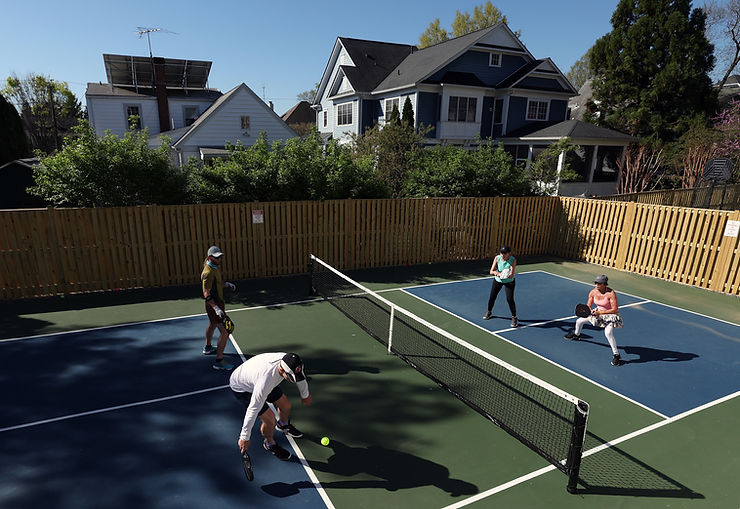By: Matthew Yang
Some U.S. residents who live near tennis courts have been annoyed by the noise of pickleball games, which sound like popcorn popping.
Pickleball is a sport that is rapidly gaining popularity in the U.S. But some are so frustrated and disturbed by the noise of wooden paddles hitting hollow balls that they are fleeing the vicinity of tennis courts.
People in Berkeley, California moved out of their apartments due to the unrelenting noise. A couple in suburban Kansas City filed a lawsuit against a nearby country club. The Glen School courts in Ridgewood, New Jersey had to be closed due to noise complaints.
The noise generated by pickleball is at least 15 decibels louder than regular background noise. The solid core of a tennis ball absorbs most sound, which makes play less likely to be noisy. However, the pickleball has a thin and brittle plastic shell with no material in the center to absorb the sound.
“It creates vibrations in a range that can be extremely annoying to humans,” said Bob Unetich, a retired engineer and avid pickleball player. The noise is high-pitched, which makes it much more bothersome than regular background noise.
“Living here is hell,” said Debbie Nagle, 67, whose gated community in Scottsdale, Arizona installed pickleball courts a few years ago.
The most effective solution to the noise problem is to build solid walls around courts. Pickleball matches typically occur on repurposed tennis courts with wire mesh fencing, rather than solid concrete, wood, or brick walls surrounding them.
Furthermore, private clubs can provide quieter paddles to help counter the noise. This way, players wouldn’t have to bring their own paddles, which may be too loud.
While pickleball is a popular sport, it has drawn lots of complaints from neighbors who live near the courts. Solutions such as building walls around the courts or using quieter paddles could be implemented to mitigate the noise issue.
Resources:
Pickleball Sound Mitigation, pickleballsound.com.











